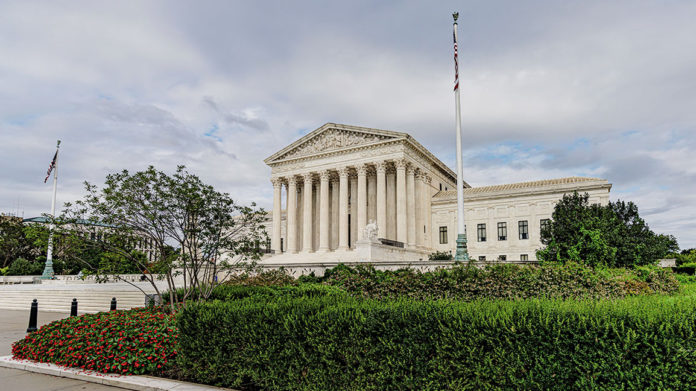WASHINGTON, D.C. – The U.S. Supreme Court affirmed that the 1975 Indian Self-Determination Act (ISDA) mandates the Indian Health Service (IHS) to reimburse tribal nations for the expenditures of revenues collected from third-party payors such as Medicare, Medicaid, and private insurers. This ensures that tribal nation healthcare programs operate on equal footing with IHS-run programs, as intended by the ISDA. The Court consolidated Becerra v. San Carlos Apache Tribe and Becerra v. Northern Arapaho Tribe and held that the ISDA and the ISDA contracts require the tribal nations to collect revenues from third-party payors and spend that revenue to further their respective healthcare programs. As a result, the costs to tribal nations of spending these revenues on further healthcare services must also be eligible for contract support cost reimbursement from IHS.
“Today’s decision is a victory for tribal self-determination and tribal sovereignty,” said National Congress of American Indians (NCAI) President Mark Macarro. “This ruling ensures that tribal nations administering healthcare services to their citizens and communities do so with the full funding to which they are entitled under federal law and contracts with the Indian Health Service.”
“Congress passed the Indian Self-Determination Act with the purpose of empowering tribal nations and ensuring that tribally-run healthcare programs would be on equal footing with those run by the Indian Health Service,” said John Echohawk, Executive Director of the Native American Rights Fund (NARF). “This decision honors the commitment Congress made to tribal nations’ rights to self-determination.”
“Nearly 50 years ago, Congress enacted the Indian Self-Determination and Education Assistance Act to promote tribal sovereignty,” said U.S. Senator Brian Schatz, Chairman of the Senate Committee on Indian Affairs. “The law allowed tribes to enter into self-determination contracts and take over their healthcare services from IHS, with confirmation that the federal government would reimburse their incurred costs. And today, the Supreme Court affirmed IHS’s responsibility to cover all of these costs, including contract support costs. This decision is a huge win for Indian Country, and a powerful reminder of the federal government’s trust and treaty obligations to tribal nations.”
“I am encouraged by this ruling, as it affirms tribal self-determination under the Indian Self-Determination and Education Assistance Act and recognizes that adequate resources are critical to addressing the unmet healthcare needs of Native people,” said U.S. Senator Lisa Murkowski, Vice Chairman of the Senate Committee on Indian Affairs. “I have seen firsthand how self-determination improves the delivery of Indian healthcare in Alaska and across the nation. I will continue working to ensure the federal government fulfills its trust responsibility to Native peoples.”
Becerra v. San Carlos Apache Tribe and Becerra v. Northern Arapaho Tribe affirm the Ninth and Tenth Circuit Court of Appeals’ wins by the tribes, making these victories applicable nationwide. Both tribal nations sued to ensure full contract support cost reimbursement from IHS related to the direct healthcare services they provide on their respective reservations. This decision follows two previous rulings by the Court that under ISDA, tribal nations are eligible for contract support costs because they incur overhead and other costs to run their healthcare programs that IHS-run programs do not.













































